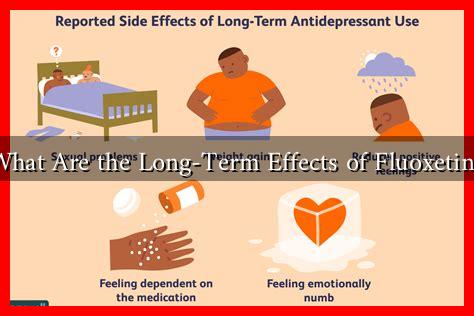-
Table of Contents
What Are the Long-Term Effects of Fluoxetine?
Fluoxetine, commonly known by its brand name Prozac, is a selective serotonin reuptake inhibitor (SSRI) widely prescribed for the treatment of depression, anxiety disorders, obsessive-compulsive disorder (OCD), and other mental health conditions. While many patients experience significant relief from their symptoms, understanding the long-term effects of fluoxetine is crucial for informed decision-making regarding mental health treatment. This article explores the potential long-term effects of fluoxetine, supported by research and case studies.
Understanding Fluoxetine
Fluoxetine works by increasing the levels of serotonin in the brain, a neurotransmitter that plays a key role in mood regulation. It is often chosen for its relatively favorable side effect profile compared to older antidepressants. However, like all medications, fluoxetine can have long-term effects that may impact a patient’s quality of life.
Common Long-Term Effects
While fluoxetine is generally considered safe for long-term use, some patients may experience a range of effects over time. These can include:
- Weight Changes: Some studies indicate that long-term use of fluoxetine can lead to weight gain or loss. A study published in the Journal of Clinical Psychiatry found that approximately 25% of patients experienced significant weight changes while on SSRIs.
- Sexual Dysfunction: Sexual side effects, including decreased libido and difficulty achieving orgasm, are common with fluoxetine. These effects can persist even after discontinuation of the medication.
- Emotional Blunting: Some patients report feeling emotionally numb or less able to experience joy or sadness, a phenomenon often referred to as “emotional blunting.”
- Withdrawal Symptoms: Discontinuing fluoxetine can lead to withdrawal symptoms, including dizziness, irritability, and flu-like symptoms. Gradual tapering under medical supervision is recommended to minimize these effects.
Case Studies and Research Findings
Research has provided valuable insights into the long-term effects of fluoxetine. For instance, a longitudinal study published in the American Journal of Psychiatry followed patients over a decade and found that those who remained on fluoxetine reported improved overall functioning but also noted persistent side effects such as weight gain and sexual dysfunction.
Another case study highlighted a patient who had been on fluoxetine for over five years. While the patient experienced significant relief from depression, they also reported emotional blunting and difficulty in personal relationships, leading to a reevaluation of their treatment plan.
Potential Risks of Long-Term Use
While fluoxetine can be beneficial, there are potential risks associated with long-term use that should be considered:
- Increased Risk of Suicidal Thoughts: Some studies suggest that long-term use of SSRIs may be linked to an increased risk of suicidal thoughts, particularly in younger populations.
- Bone Density Loss: Research indicates that long-term SSRI use may be associated with decreased bone density, increasing the risk of fractures in older adults.
- Serotonin Syndrome: Although rare, prolonged use of fluoxetine can lead to serotonin syndrome, a potentially life-threatening condition caused by excessive serotonin levels.
Conclusion
Fluoxetine can be an effective treatment for various mental health conditions, offering significant benefits for many patients. However, it is essential to be aware of the potential long-term effects, including weight changes, sexual dysfunction, emotional blunting, and withdrawal symptoms. Ongoing research continues to shed light on these effects, emphasizing the importance of regular consultations with healthcare providers to monitor and adjust treatment as necessary.
Ultimately, the decision to use fluoxetine long-term should be made collaboratively between the patient and their healthcare provider, weighing the benefits against the potential risks. By staying informed and proactive, patients can better navigate their mental health journey.

